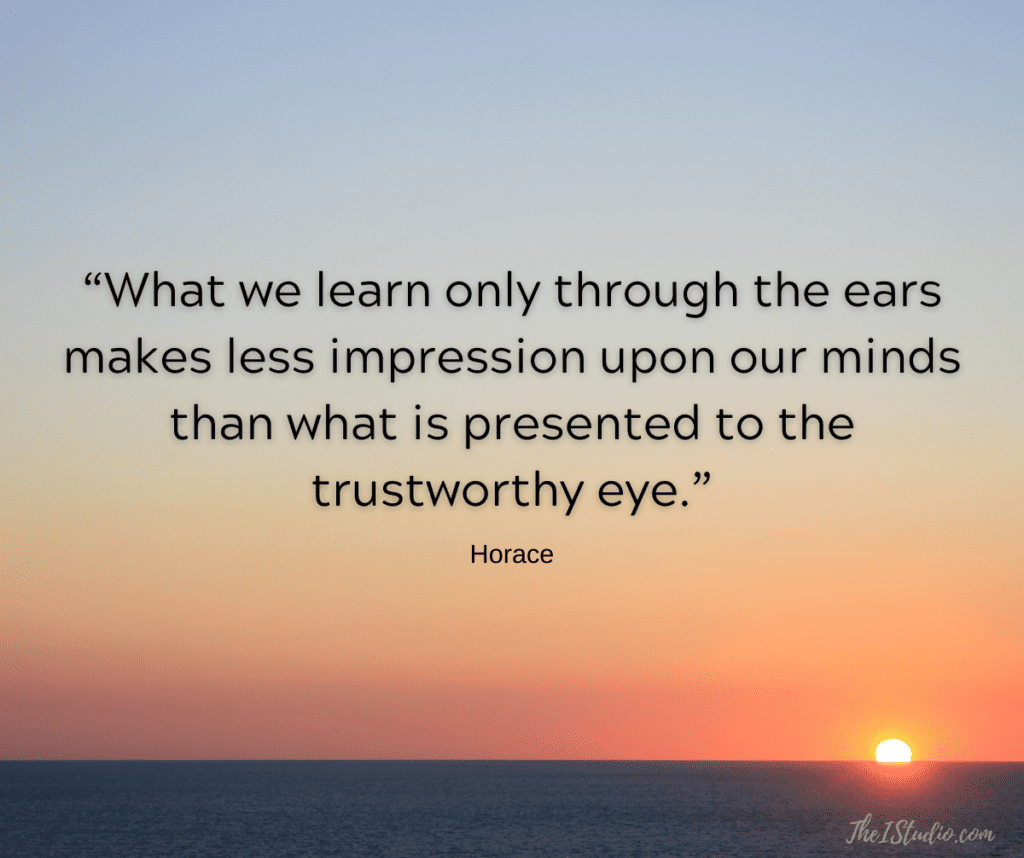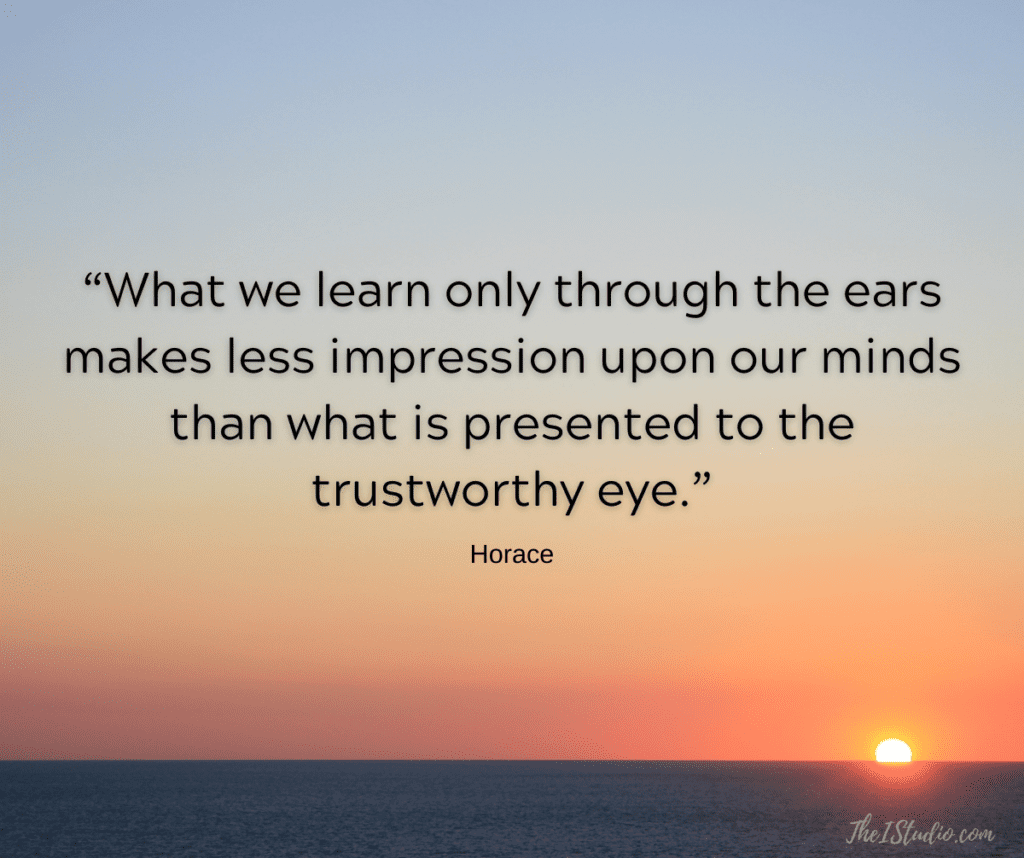

If you follow SEO, you may have noticed an acronym that has become part of the conversation. This acronym tells you all you need to know and seriously consider regarding SEO. That acronym is E-A-T and stands for Expertise, Authority, and Trust.
There are a bunch of great resources to do a deep dive into E-A-T if you want to. And I recommend that you do, you know, the “knowledge is power” thing? However, in this post, I'm just going to give you an overview of E-A-T so that you can start to review your site and your content.
I will update this post as new information and insight are discovered. However, what is clear is it is time to embrace what is required to rank well, or you never will.
Estimated reading time: 9 minutes
What Does E-A-T Mean?
Expertise, Authoritativeness, and Trustworthiness (E-A-T). This comes right from the horse's mouth. Google's Site Quality Rater Guidelines is a 172 page PDF document covering what Google site evaluators use in their determinations. [Updated October 19, 2021]
UPDATE: Google updated their QRG guidelines linked to the above on May 16, 2019. One of the changes was that the term E-A-T was replaced with “Page Quality.” Keep this in mind as you continue in this article. (Read Google's latest post on the topic here.)
Google states in a series of tweets that site evaluators have no impact on rankings. However, this information provides a window into what Google's thought process may be. And it is no big surprise — just common sense.
GSQEG, Section 4.1 in particular notes:
Nothing new, right? This is how sites have consistently been ranked. But, now, we have some Google documentation and another way to explain some of the variables you need to consider regarding your search engine rankings.
Then, recently, in March 2020 Google added to the GSQEG:


Next came discussions with John Mueller of Google:
But here's what Google said on 2.18.22
At the 10:30 mark. John Mueller of Google said that while there is no E-A-T score that Google uses, E-A-T is important and indirectly in the search ranking algorithm. Here's the entire Office Hours video for your review:
So while EAT isn't an algorithm or something you can “track,” it is a solid guide on what you need to do to ensure your site signals “what a good human EAT assessment would be.” EAT is just a conceptual model for humans to explain what the algorithm is trying to emulate. So use this knowledge to your advantage. Read the official document on “How Google Search Works.”
Expertise
Are you knowledgeable on the topic of your site? This is where putting efforts into building your brand consistently across platforms will pay off. This is why I put a significant emphasis on crafting a website's About Page when I work with my clients because it contributes to the story of their E-A-T.
When a high level of authoritativeness or expertise is needed, the reputation of a website should be judged on what expert opinions have to say. Recommendations from expert sources, such as professional societies, are strong evidence of very positive reputation.
GSQEG, 2.6.1
Even more so if you are a YMYL site. “Your Money or Your Life.”
Some types of pages could potentially impact the future happiness, health, financial stability, or safety of users. We call such pages “Your Money or Your Life” pages, or YMYL.
GSQEG, Section 2.3
Pages that fall into YMYL are…
Look for information written by a person, not statistics or other machine-compiled information. News articles, Wikipedia articles, blog posts, magazine articles, forum discussions, and ratings from independent organizations can all be sources of reputation information. Look for independent, credible sources of information.
GSQEG, 2.6.1
Topics and Expertise
This doesn't require an “official” expert like a lawyer or doctor with educational credentials. Life experience can provide that expertise indicator as “everyday experience.” Once again, the quality and volume of your content should back this up.
Some topics require less formal expertise. Many people write extremely detailed, helpful reviews of products or restaurants. Many people share tips and life experiences on forums, blogs, etc. These ordinary people may be considered experts in topics where they have life experience. If it seems as if the person creating the content has the type and amount of life experience to make him or her an “expert” on the topic, we will value this “everyday expertise” and not penalize the person/webpage/website for not having “formal” education or training in the field.
GSQEG, 3.2
Authoritativeness
It is clear who is creating the content? Does experience back up the content? Are you a credible source? (Or just a site churning out shallow or aggregated content to support all your ads?) Credibility is also viewed not by the content alone but through outside reviews and testimonials *.
This goes for your Author profile too! Be sure to list all your credentials and provide a detailed view, including any accreditation and endorsements. Make clear why you are an expert on the topics you write about.
Trustworthiness
Is the site creator, content, and overall site quality easily trusted? This includes security (HTTPS). Contact information, policy pages, privacy statements also contribute to trustworthiness.
The bottom line is you need to be credible from visuals to content, to context and structure. Every little thing you do, or don't do, can hurt the E-A-T determination for your website.
It's All About High Quality, Baby
Back in the day, putting up your website produced results. Primarily because there weren't as many websites which made it easier to get found. The bar wasn't as high as it is today. Now, to get found depends on algorithms and social media proof. All of which depends on users and platforms determining your expertise, authority, and trustworthiness. And, boy, has that bar been raised.
If you think about it, you apply E-A-T principles every time you land on a new site, even if subconsciously. You determine if the information is credible if you are willing to trust that site with your hard-earned dollars.
GOOGLE UPDATE: 4.19.21:
“Last November, we announced that the page experience ranking change will go live on Google Search this year, in what we're calling the “page experience update.” To help publishers and site owners improve their page experience and prepare, today we're announcing a few key updates…”
Read blog more on Google.
Quality and Satisfaction are Key
Shoot for high quality. Not average, not just enough. High quality.
One can say that quality is in the eye of the beholder. But not when it comes to SEO. Your website overall and particularly your content need to benefit and satisfy that purpose well.
High-quality pages have the following characteristics:
â—Ź High level of Expertise, Authoritativeness, and Trustworthiness (E-A-T).
â—Ź A satisfying amount of high-quality MC, including a descriptive or helpful title.
â—Ź Satisfying website information and/or information about who is responsible for the website. If the page is primarily for shopping or includes financial transactions, then it should have satisfying customer service information.
â—Ź Positive website reputation for a website that is responsible for the MC on the page. Positive reputation of the creator of the MC, if different from that of the website.GSQEG, 4.1
Ask Yourself These E-A-T Questions
Now that you understand what is considered a high-quality site, you know what you need to do. First, review your main content, visuals, and navigation and ensure it is the best for your site visitors.
Yes, you need to do whatever you can to make your site zippy too. While updates and algorithms can impact your rankings, creating great content is still the magic bullet, if any. However, no one will stick around for all that great content if your site hangs.
None of this is really “new” news. It's the way sites have been judged from the start. Do you want to be viewed as an expert? Write like one – a lot. Do you want to be an authority on a subject? You'd better be one because you can't fake that.
Want to get great rankings?
Target visitor intent while making sure your site pops and is user-friendly. If you want to be trusted, there are no shortcuts.
At your service,


